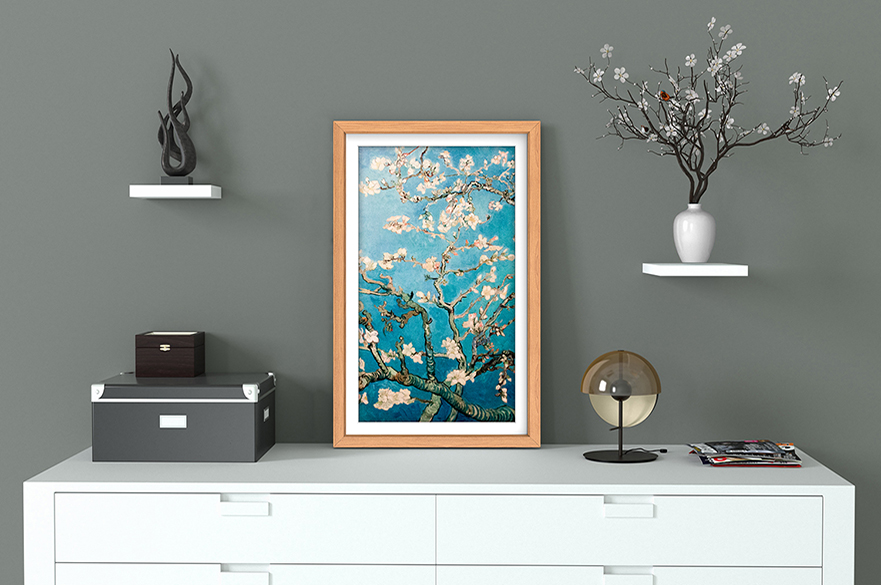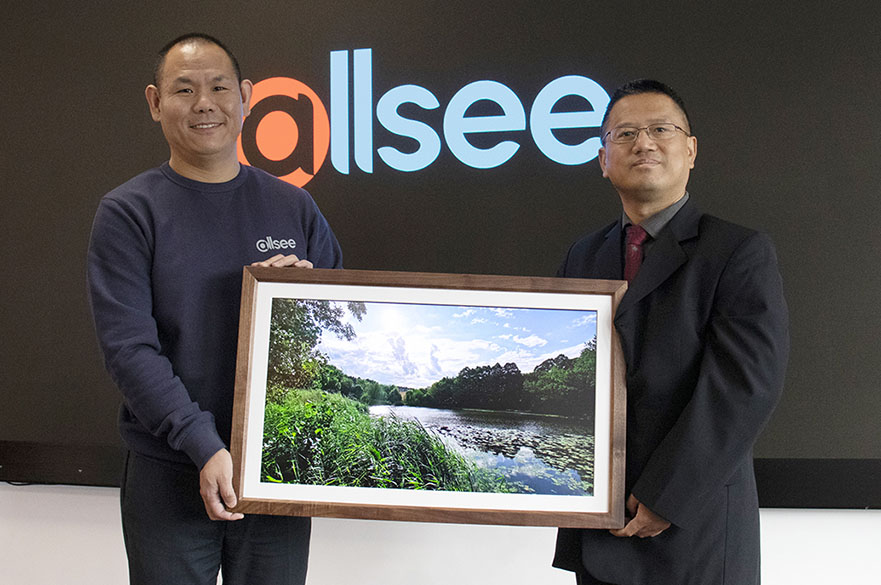Digital displays of nature to improve mental health
Images of nature which improve mental health will be beamed into homes, public spaces and workplaces as part of a new research project between Nottingham Trent University and international display manufacturer Allsee Technologies.
By Chris Birkle | Published on 12 October 2021
Categories: Press office; School of Architecture, Design and the Built Environment;

Images of nature which improve mental health will be beamed into homes, public spaces and workplaces as part of a new research project between Nottingham Trent University and international display manufacturer Allsee Technologies.
The £260,000 project – a knowledge transfer partnership lasting two years – will incorporate screens which can broadcast moving and still images of nature that are so clear they look like the real thing, enabling immersive experiences to enhance wellness, comfort and entertainment.
The research is centred on the emerging use of biophilic design and smart building technologies, which recognises the human instinct to connect with nature and the mental health benefits this can bring, such as reducing stress, anxiety and depression, and improving cognitive function.
Consumers of the technology – named Vieunite - will also be recommended a variety of real paintings in their homes which complement their environment and match their personal tastes.
As well as photography and moving images of nature, biophilia also recognises the mental health benefits of paintings and other artworks which depict nature, and how these yield similar therapeutic benefits.
Around 200 artists are being invited to be part of the project – which will include a number of students and academics from NTU’s School of Art & Design – to develop a selection of biophilic artwork.
The project will also investigate the use of artificial intelligence as a way to select images which are personalised to each individual, based on their demographic information and online behaviours.
Users will be able to share recommendations for different images in an online community of subscribers.

Project partners Baoli Zhao and Dr Yangang Xing
Project lead Dr Yangang Xing, of NTU’s School of Architecture, Design and the Built Environment, said: “Being immersed in nature is proven to be good for people’s mental health, but not everybody is fortunate enough to live in an environment which has access to a rich natural habitat.
“Research shows that by being amongst nature – or seeing images or artwork which depict natural things like trees and leaves – has a positive impact on our mental health.
“So this project will help people feel the benefit of being amongst nature, even if their immediate environment has a poor access to it.
“And, by bringing such images to public spaces like train stations, commuters will be able to feel much less stressed on their commute, thereby improving people’s daily lives.”
The research will consider how images of nature could vary at different times of day, to help consumers feel energised in the mornings or calm in the evenings.
It will also offer a smart approach to images of their favourite holiday destinations, or general parts of the world where they may hold a personal interest, and offer recommendations of other images which an algorithm suggests.
The digital canvas screens used in the project use specially treated LCD panels and do not give any reflections of light which are often seen on ordinary televisions, to add to the realistic feel.
Baoli Zhao, managing director at Allsee Technologies, said: “Vieunite is an innovative system which combines an advanced digital canvas with an online community.
“It also provides artists with a contemporary and unique online platform to sell their work, as well as offering other users a new way of sharing photos and videos with their loved ones.
“The display element of this system will have an integrated therapeutic element paired an AI-based content engine.
“We are very much looking forward to collaborating with Nottingham Trent University on this exciting new project and developing a long-lasting relationship that will help to bring this innovative and cutting edge solution to
Notes for Editors
Press enquiries please contact Chris Birkle, Public Relations Manager, on telephone +44 (0)115 848 2310, or via email.
Nottingham Trent University (NTU) was named University of the Year 2019 in the Guardian University Awards. The award was based on performance and improvement in the Guardian University Guide, retention of students from low-participation areas and attainment of BME students.
NTU was also the Times Higher Education University of the Year 2017, and The Times and Sunday Times Modern University of the Year 2018. These awards recognise NTU for its high levels of student satisfaction, its quality of teaching, its engagement with employers, and its overall student experience.
The university has been rated Gold in the Government’s Teaching Excellence Framework – the highest ranking available.
It is one of the largest UK universities. With over 37,000 students and more than 4,000 staff located across four campuses, the University injects £1.6bn into the UK economy. It has been the largest recruiter of UK undergraduates in each of the last four years. With an international student population of more than 6,000 and an NTU community representing around 160 countries, the University prides itself on its global outlook.
The university is passionate about creating opportunities and its extensive outreach programme is designed to enable NTU to be a vehicle for social mobility. NTU is among the UK’s top five recruiters of students from disadvantaged backgrounds and was awarded University of the Year in the UK Social Mobility Awards 2019.